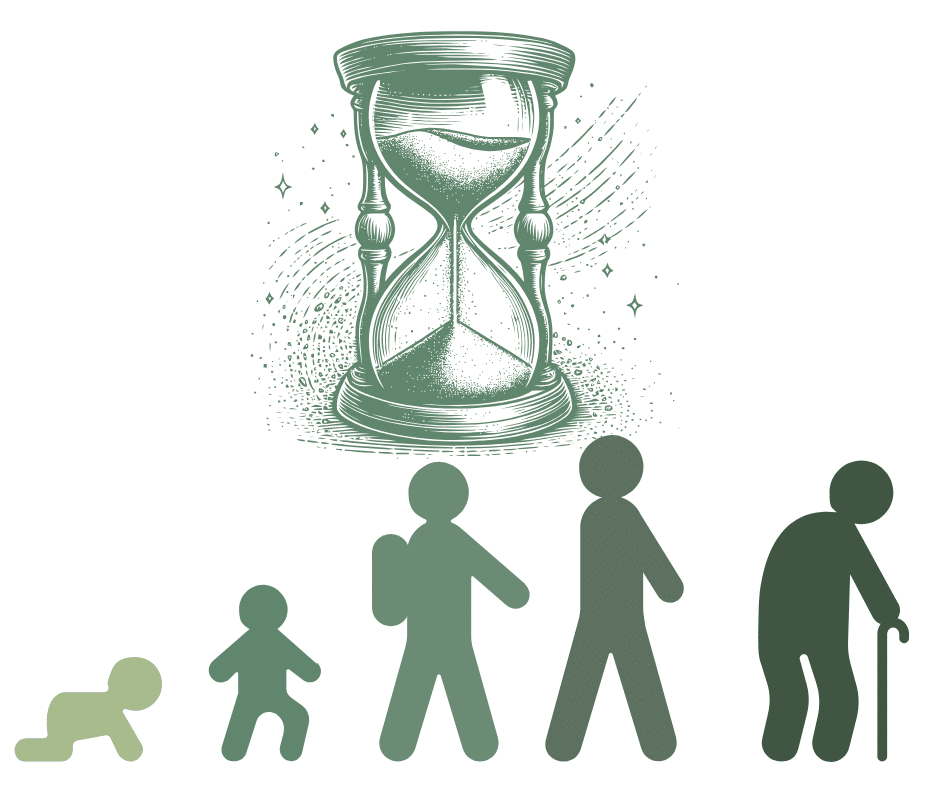There’s a universal truth about time that unites schoolchildren and pensioners alike: nobody experiences it the same way. Ask a child in the middle of the school term when Christmas is coming, and you’ll hear dramatic sighs, exaggerated eye-rolls, and complaints that December might as well be years away. For them, waiting for Christmas morning is like waiting for the Earth to spin backwards. A school year feels like a lifetime. Summer holidays, once they finally arrive, seem to last forever—days stretching out in long afternoons of ice cream, cartoons, and scraped knees.

Fast forward a few decades, and ask an adult the same question about Christmas. You’ll likely hear something like, “Wasn’t it just Christmas?” Suddenly, it’s April, then October, then somehow Christmas again. The years blur, the holidays come faster, and birthdays pop up like an overzealous notification you forgot to switch off.
So what’s happening here? Are children simply more impatient, or are adults just too distracted to notice time slipping by? The answer lies somewhere in between, and science has some interesting theories to explain it.
Proportion Changes Everything
To a seven-year-old, a year is one-seventh of their life. That’s a massive chunk of time. It’s no wonder they feel like the school term drags on and the countdown to Christmas is an eternity. In contrast, for a 50-year-old, one year is just 2% of their life so far—a sliver of experience. This idea, first introduced by psychologist Hermann Ebbinghaus, helps explain why grown-ups feel like the calendar is speeding up: each year is smaller relative to everything they’ve already lived.
Childhood Is Full of Firsts
Think back to your own school days. Every week brought something new—your first school trip, your first crush, your first time getting in trouble for talking during assembly. These moments were rich, exciting, and sometimes terrifying, but they were new. And novelty forces the brain to slow down, take notice, and create vivid memories.
Now consider your adult life: the commute is the same, your lunch is the same, even your arguments with your internet provider are the same. Routine doesn’t just dull excitement—it makes time feel like it’s passing faster. The brain stores fewer distinct memories, and days begin to blur together. That’s why the memory of a two-week adventure abroad feels longer than six months of workdays.
The Brain Slows Down
Research from Duke University’s Adrian Bejan suggests that as we age, our brains process fewer visual frames per second, like switching from high-definition video to an old camcorder. With less sensory input per moment, our brains speed through the day without noticing all the fine details. Children, on the other hand, process more and faster. A minute in a school hallway, packed with noise, faces, and smells, feels dense. To a child, that minute is full of information. To an adult, it’s just Tuesday.
Dopamine: The Ticking Inside
Dopamine, the brain’s “feel-good” chemical, also plays a role in time perception. As we age, dopamine levels decline, which affects our internal clock. Children, flooded with dopamine during exciting events like birthdays or holidays, feel each second tick by. Adults? Not so much. Without that internal buzz, the clock just speeds along.
Can We Stretch Time Again?
Actually, yes. We might not be able to relive childhood, but we can change how we perceive time:
- Break the routine: Try something new, even if it’s just a different walking route or learning a new skill.
- Be mindful: Pay attention to the moment, not the to-do list.
- Single-task: Focus on one thing at a time instead of juggling five.
- Create memory anchors: Take photos, keep a journal, or try documenting your week with a short voice note.
Let’s Stop Racing the Clock
When children moan about how slowly time moves, we laugh and tell them they’ll miss it someday. What we don’t say—but often feel—is how we wish we could stretch out a single afternoon like we used to. The trick isn’t in trying to pause time, but in learning to feel it again. To notice it. To live it.
Because the truth is, the years aren’t speeding up—we’re just moving through them with less attention. The good news? We can choose to change that.







